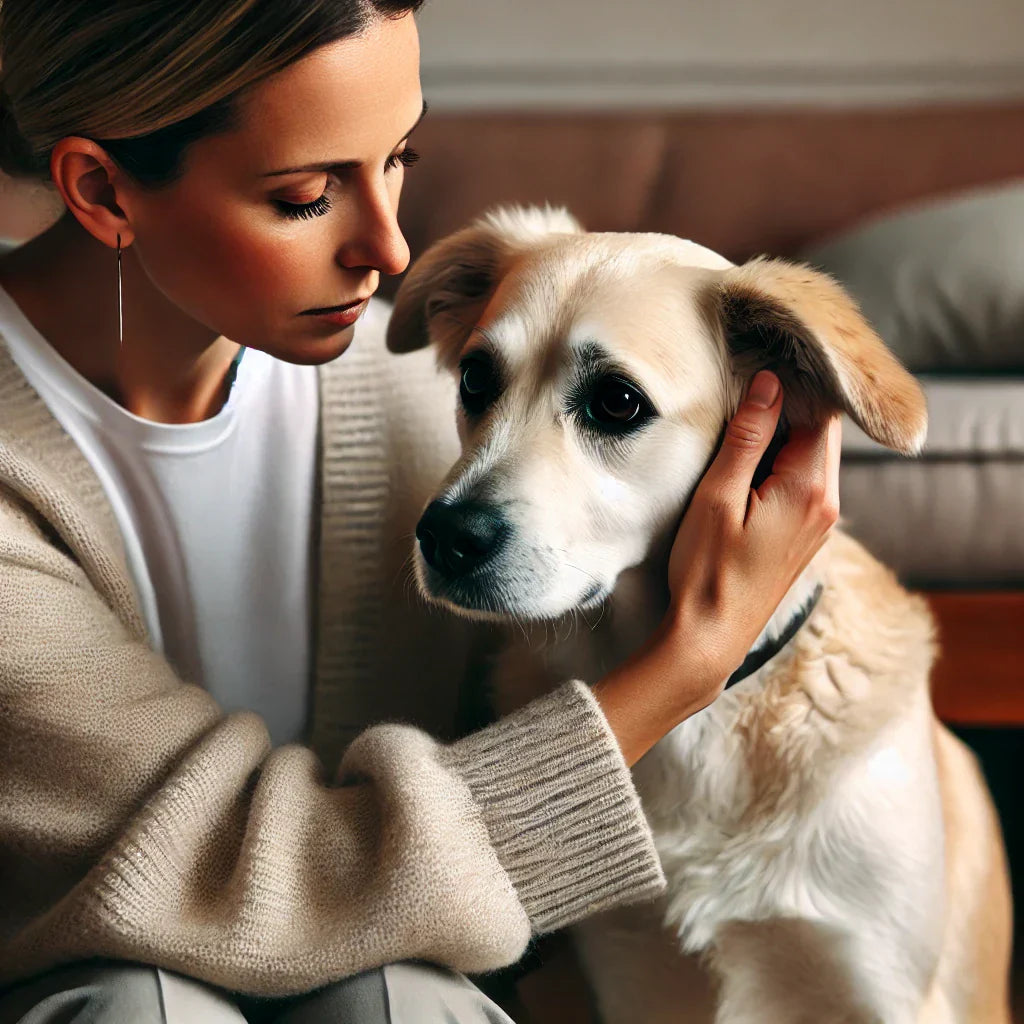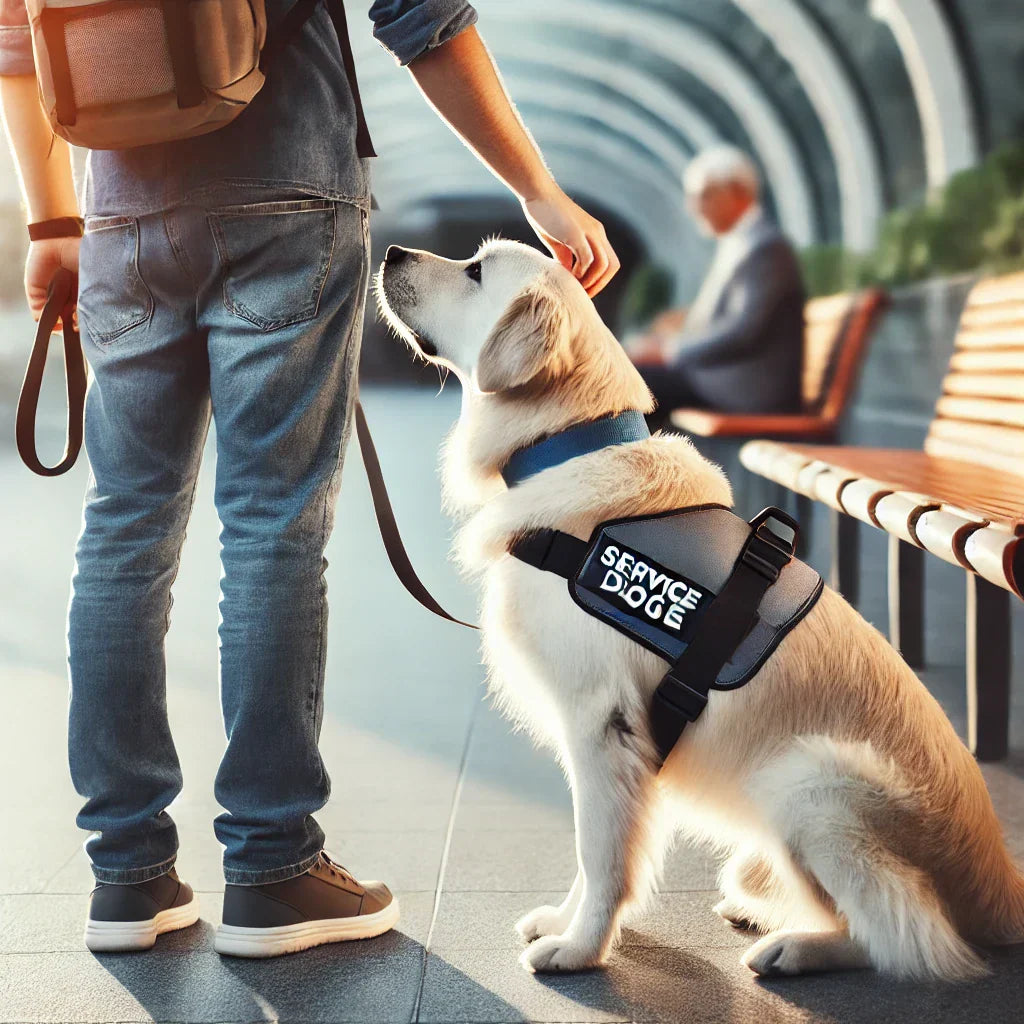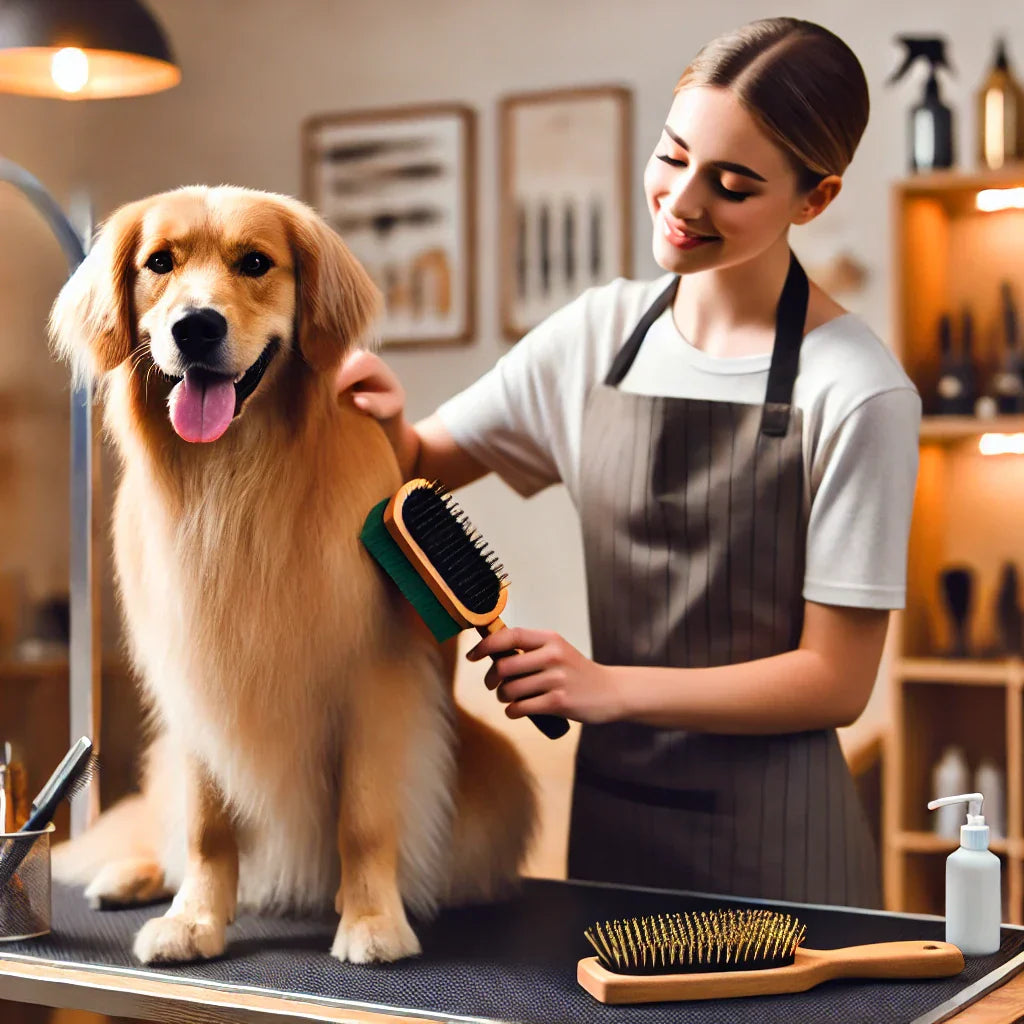Introduction
Does your dog seem restless, clingy, or fearful in certain situations? Just like humans, dogs can experience anxiety, which can impact their well-being if not properly managed.
Dog anxiety can stem from separation, loud noises, unfamiliar environments, or past trauma. The good news? With the right techniques and natural solutions, such as Pupps' Calming Dog Treats, you can help your dog feel calm and secure.
In this guide, we’ll cover:
- ✔️ Common signs of anxiety in dogs
- ✔️ Causes of dog anxiety
- ✔️ Practical solutions & calming techniques
- ✔️ How Pupps' Calming Dog Treats can help
What Causes Anxiety in Dogs?
Anxiety in dogs can be triggered by various situations, experiences, or environmental factors. The most common causes include:
🐕 Separation Anxiety
Occurs when a dog becomes distressed when left alone. This is one of the most common behavioral issues in pets.
🎆 Noise Phobias
Dogs can be afraid of fireworks, thunderstorms, or loud household noises like vacuum cleaners.
🚗 Travel Anxiety
Some dogs get nervous during car rides or public transport, leading to whining, drooling, or nausea.
🏡 Change in Environment
Moving house, a new pet, or a change in routine can cause stress in sensitive dogs.
🛑 Past Trauma
Dogs who have experienced abandonment, abuse, or neglect may develop long-term anxiety.
Common Signs of Anxiety in Dogs
Recognizing anxiety early can help you manage and prevent worsening behavior. Here are the most common signs:
- 🐶 Excessive Barking or Whining – Often triggered by separation or stress.
- 🚶 Pacing or Restlessness – A sign of nervousness or discomfort.
- 💨 Panting & Shaking – Occurs even if the weather isn’t warm.
- 🦴 Loss of Appetite – Anxiety can cause a decrease in eating habits.
- 🐾 Destructive Behaviour – Chewing furniture, scratching doors, or digging.
- 🚽 Accidents Indoors – Even in house-trained dogs, stress can lead to unexpected accidents.
- 💔 Clinginess or Avoidance – Some anxious dogs become overly attached, while others hide.
How to Calm an Anxious Dog: Effective Solutions
1. Create a Safe & Comfortable Space
Provide a quiet, secure area where your dog can retreat when feeling overwhelmed.
2. Use Natural Calming Treats
Pupps' Calming Dog Treats are specially formulated to help reduce stress and anxiety. These treats contain:
- 🌿 Valerian Root & Chamomile – Natural herbs known for their calming effects.
- 💧 L-Theanine & L-Tryptophan – Amino acids that promote relaxation.
- ✨ Hemp Oil & Powder – Supports overall well-being and stress reduction.
These ingredients work together to provide a **safe and effective** way to **ease anxiety** in dogs.
3. Maintain a Consistent Routine
Dogs thrive on routine and predictability. Try to:
- 🐾 Feed and walk your dog at the same times daily.
- 🚶 Keep exercise and playtime consistent.
- 💙 Avoid sudden changes in your schedule when possible.
4. Engage in Mental & Physical Stimulation
Keeping your dog’s mind busy helps redirect **stressful energy** into positive activities.
- 🐾 **Puzzle feeders** – Encourages problem-solving.
- 🦴 **Chew toys** – Releases nervous energy.
- 🎾 **Scent games** – Hide treats around the house for a rewarding challenge.
FAQs About Dog Anxiety
1. Can dog anxiety go away on its own?
Some mild cases improve with **training and management**, but long-term anxiety often requires **consistent intervention**.
2. Should I use medication for dog anxiety?
In severe cases, **a vet may prescribe anxiety medication**, but natural methods like Pupps' Calming Dog Treats should be tried first.
3. How do I stop separation anxiety?
Start with **short departures**, reward calm behaviour, and avoid making arrivals/departures overly emotional.
Final Thoughts: Help Your Dog Feel Safe & Relaxed
Recognising anxiety in dogs early can help you provide the **support and care** they need. Whether through **training, supplements, or a calming routine**, you can **improve your dog's quality of life**.
🐶💙 Looking for an easy way to calm your anxious dog? Try Pupps' best-selling Calming Dog Treats—trusted by dog owners across the UK!
Further Reading:




Leave a comment
This site is protected by hCaptcha and the hCaptcha Privacy Policy and Terms of Service apply.